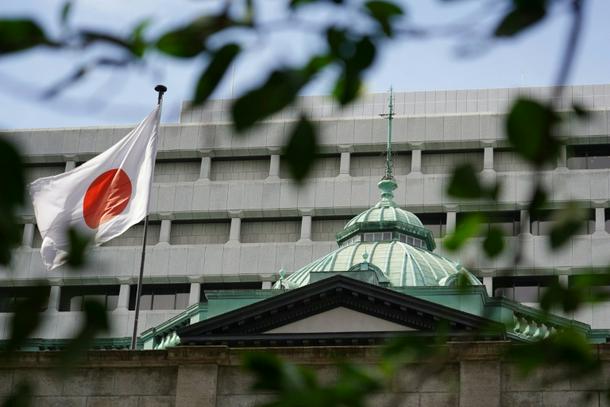
Officials began hiking rates from below zero in March last year
Tokyo (AFP) - The Bank of Japan kept interest rates on hold Thursday at 0.5 percent, warning of lingering economic “high uncertainties” linked to US trade tariffs.
The decision, expected by economists, came after the first monetary policy meeting since Sanae Takaichi became Japan’s new premier last week.
She is widely seen as in favour of monetary easing and active fiscal spending to boost the economy.
“High uncertainties still remain regarding the impact of trade and other policies on economic activity and prices at home and abroad,” the BoJ said in a statement following the decision.
The announcement also came after US Treasury Secretary Scott Bessent told his Japanese counterpart about the importance of “anchoring inflation expectations”.
Bessent visited Tokyo along with US President Donald Trump, who was meeting Takaichi face-to-face for the first time.
BoJ governor Kazuo Ueda shrugged off any pressure from Bessent, telling reporters after the policy decision: “We will calmly implement appropriate monetary policies based on the economic and price outlook and the degree of certainty regarding that outlook.”
Stephen Innes, managing partner of SPI Asset Management, said the “message was clear” from the rate decision.
“Japan’s balance sheet can no longer afford the distortions of ultra-low rates, and the global system can no longer run on the assumption that the yen will always absorb excess liquidity,” he said.
Marcel Thieliant, head of Asia-Pacific for Capital Economics, said in a note that “crucially, there are few signs that the Bank is becoming less concerned about the impact of higher tariffs”.
“The Bank still sees a risk that lower profits could result in a slowdown in wage growth as firms put more effort on cost-cutting,” he said, predicting that the next rate hike will come in January.
- Rate pause -
Officials began hiking rates from below zero in March last year as figures signalled an end to the country’s “lost decades” of stagnation, with inflation surging.
However, with worries about the global outlook and US tariffs growing, the bank paused its tightening measures at the start of 2025, with the last increase in January, taking rates to their highest level in 17 years.
“The reason for maintaining the interest rate is the uncertainty surrounding the overseas economy, particularly the US economy, and global trade policy trends,” Ueda said.
“We would like to observe more data” including annual union negotiations over pay starting early next year, as corporate revenues may be affected by US tariffs, he said.
He declined to comment on the timing and the size of the next rate hike.
The yen weakened against the dollar after the BoJ decision, which was carried by seven votes to two.
Takaichi, 64, an acolyte of former premier Shinzo Abe, has advocated her mentor’s “Abenomics” policies, including massive monetary easing and active fiscal spending.
Her ministers, however, said the BoJ has independence in its monetary decisions.